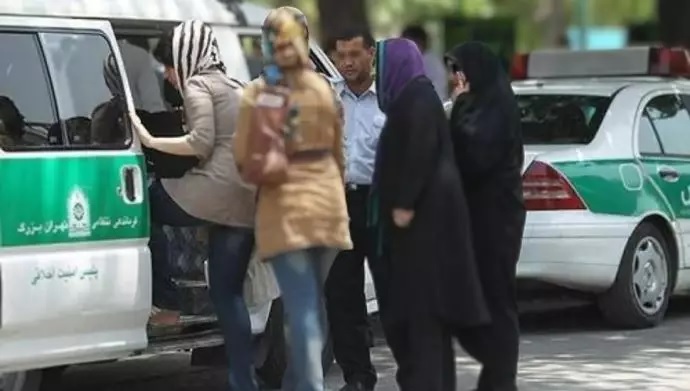On August 9, after pointing to the complains of Basij forces who were disappoint from regime incapability imposing the compulsory hijab, Raisi attacked Iranian women and said that the matter “will be dealt with surely.”
Raisi is issuing these threats while the Majlis (parliament) is stuck in implementing a bill to impose the mandatory hijab.
On Sunday, August 6, during an informal vote, in a closed session of the Majlis, it was decided that the so-called “Chastity and Hijab” bill be reviewed based on Article 85 of the regime’s constitution.
If this bill is to be approved based on article 85 of the constitution, in terms of time, its implementation will be limited and experimental.
On August 7, the state-run Hammihan newspaper wrote, “Based on article 85, if the bill is approved, its implementation will be limited in time and experimental in terms of time. According to the state media, “This type of voting does not create any obligation for the presidium; it gives them the right to gradually remove a plan or bill from the agenda, so that the presidium is not accountable for it. On the other hand, according to Article 85, this bill will be reviewed and approved by the legal committee, and the representatives (without debate), will vote for it only in the Majlis floor.”
It seems that the Majlis has found a way to overturn this bill. A bill that have described by some regime officials as a means to discredit the Majlis. Article 85 is going through the same path of the internet censorship bill dubbed “Internet Protection Bill,” which the Majlis entrusted it to the supreme council of cyberspace.
It is said that the hijab bill will also be entrusted to the Supreme Cultural Council.
It’s worth noting that during the asceticism voting, Mohammad Bagher Ghalibaf, the speaker of the Majlis, according to his well-known method, left the Majlis and entrusted the work to his deputy so that he would not be responsible for the consequences.
According Majlis member Ahmad Ali Reza Beigi, “The entirety of Majlis is afraid of expressing their opinion on the chastity and hijab bill and prefers that this issue be dealt with elsewhere that would face the challenge of public opinion.” (Source: state-run Shargh newspaper, August 7).
This “panic” of “public opinion” signifies this notion why this disgraceful plan, which has 70 articles, has been passed between the three powers and inside the Majlis for months, and each institution throws it to another institution to deal with it.
On one hand, this medieval and misogynistic regime is constantly trying to impose the compulsory hijab and intensify the atmosphere of oppression, and on the other hand, it is afraid that the pressure will lead to a spark, as it did in September of last year, igniting the anger of the society that is fed up with poverty and corruption and tyranny.
By looking at the statements and actions of the regime over past few months, the regime’s impasse becomes clear:
After the brutal murder of Mahsa Amini on September 16, 2022, which ignited the months-long uprising, the criminal morality police did not appear on the streets for a long time out of fear. But on July 16, the spokesperson of this repressive police force announced, “From today, the police will carry out its duty with mobile patrols and on foot. It will deal with those who break norms and regulations” (Source: Mehr news agency – July 16).
But the said patrol, which appeared in the streets with white vans without the name and sign of “morality police,” had to leave the scene when they faced with the resistance of women and girls, and rebellious youth.
Then the regime tried to fill this gap by issuing inhumane and ridiculous decrees, such as sentencing those who break the hijab rules to wash corpses for one month, and enforcing other punishing measure like: referral to a psychiatrist, prosecution through surveillance cameras, closure of some companies whose female employees did not wear the mandatory hijab, sealing of shops and public places that provided services to these women, and applying the staggering fines over 1.5 billion rials on violators, etc.
The regime’s latest plan is to impose the compulsory hijab and continue social repression is the “Hijab Watchers” plan. According to the state-run media’s reports, Tehran municipality will deploy 400 members of the municipal security unit as Hijab Watchers in the subway with a monthly salary of 120 million rials. These repressive officers prevent “mal-veiled” women from entering the subways and arrest them to be handed over to the police (Source: the state-run Entekhab website – August 6).
But there is no doubt that the same will that has dismantled the regime’s previous tactics will defeat the Hijab Watcher plan.





